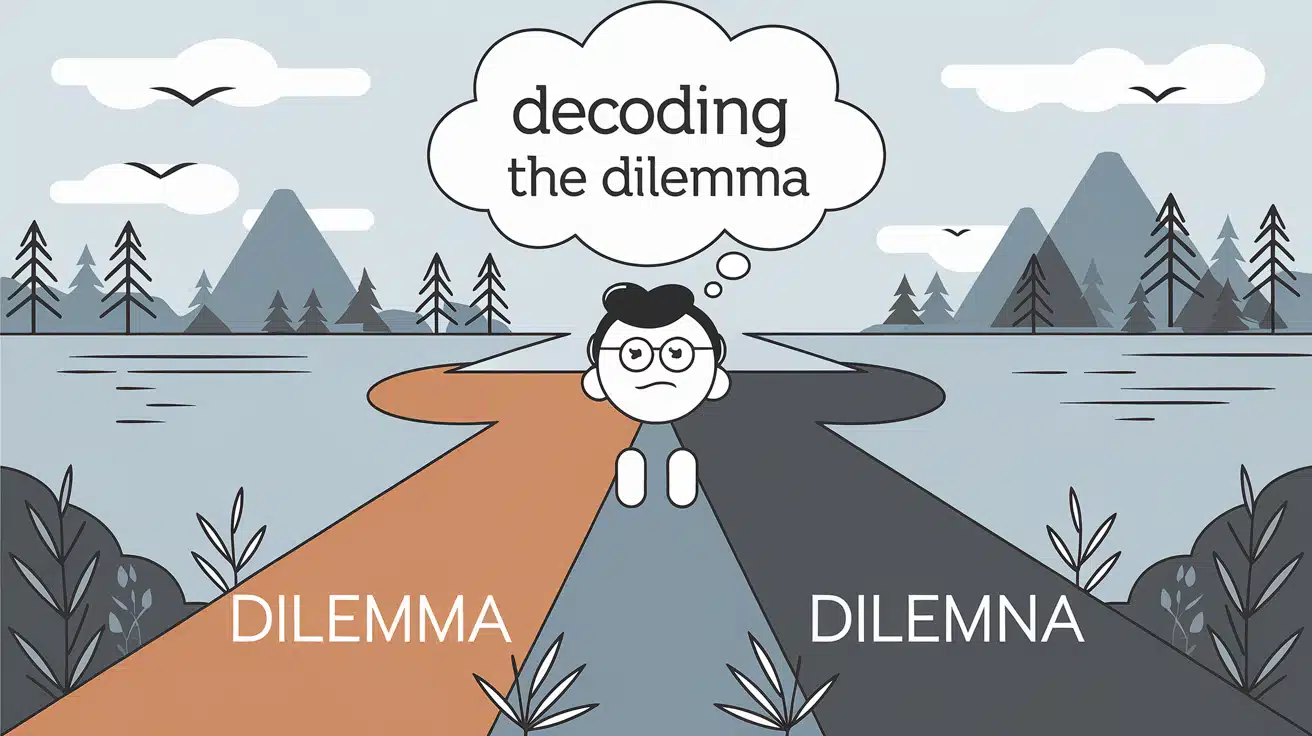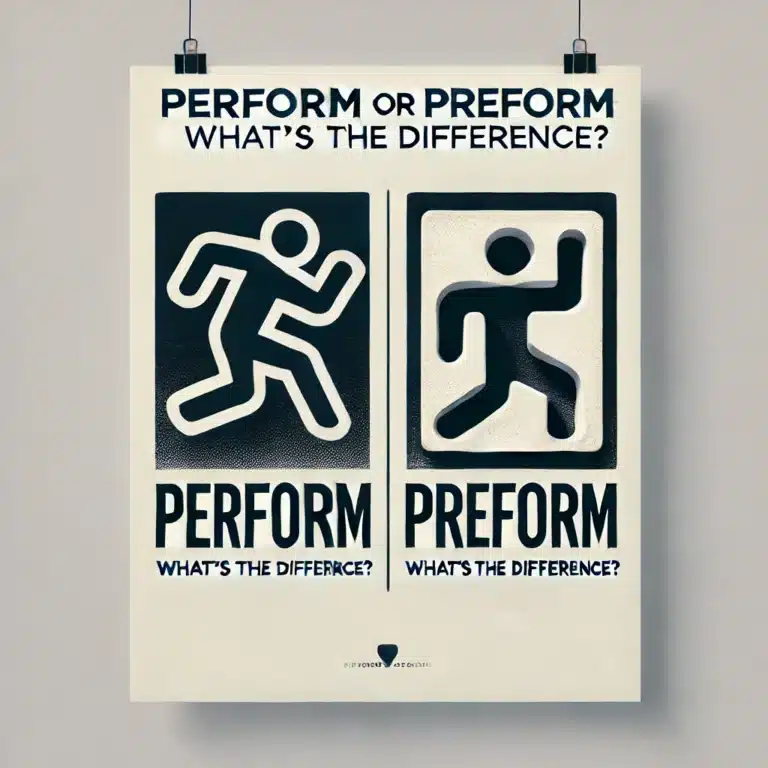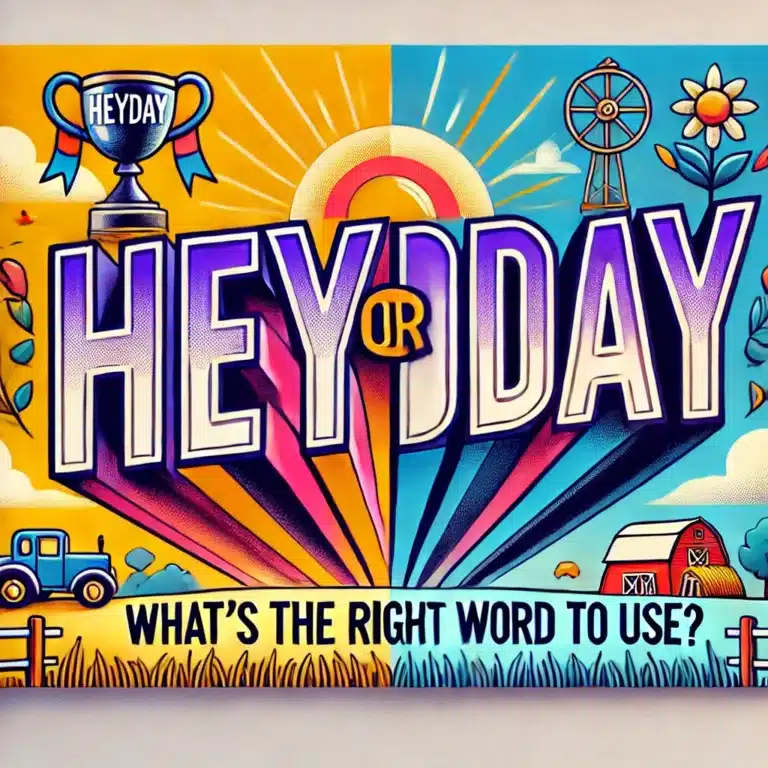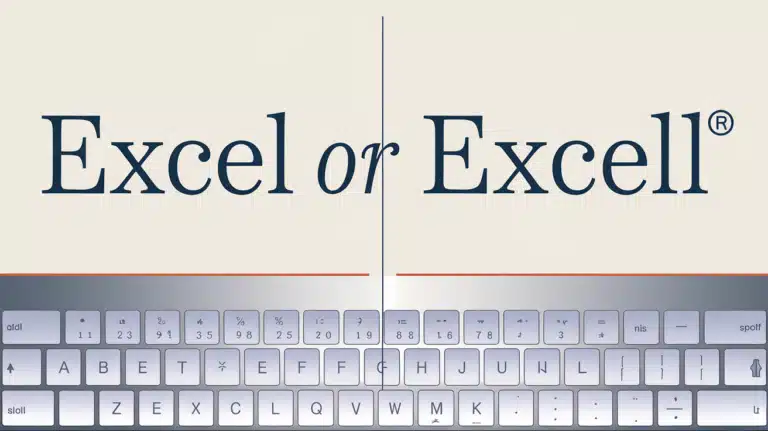Decoding the Dilemma vs. Dilemna Spelling Dilemma: Get It Right Once and for All
The English language is full of quirks, and one of the most puzzling involves the spelling of “dilemma.” For years, people have debated between “dilemma” and “dilemna,” leading to widespread confusion. If you’ve ever wondered about the correct spelling and why this mix-up exists, you’re not alone. In this article, we’ll explore the dilemma spelling confusion, uncover its origins, and equip you with tools to avoid this common error.
Dilemma vs. Dilemna: A Persistent Spelling Confusion
What Does “Dilemma” Mean?
The word “dilemma” refers to a situation where you’re faced with two difficult choices, neither of which is ideal. It stems from the Greek word dilemmaton, combining “di-” (meaning “two”) and “lemma” (meaning “proposition”). Commonly used in everyday English, it highlights the challenges of decision-making in uncertain situations.
Examples:
- “She was caught in a dilemma about whether to accept the new job or stay in her current role.”
- “The ethical dilemmas in the workplace often require thoughtful consideration.”
Where Does “Dilemna” Come From?
Despite being widely used, “dilemna” has no basis in the English language. Here’s why it persists:
- Misremembered Lessons: Many people recall being taught “dilemna” in school, possibly due to misinformed teachers or textbooks.
- Silent Letter Patterns: English words like “gnome” and “knight” may have led people to assume a silent “n” in “dilemma.”
- False Memory Effect: This psychological phenomenon causes people to confidently recall something incorrect, like the spelling “dilemna.”
Table: Key Differences Between “Dilemma” and “Dilemna”
| Aspect | Dilemma | Dilemna |
|---|---|---|
| Recognized in English | ✅ Yes | ❌ No |
| Dictionary Definition | A tough choice between two options | Not recognized |
| Usage Frequency | Common | Informal and incorrect |
| Historical Origins | Greek and Latin | Non-existent |
Correct Spelling: “Dilemma”
Proof from Linguistic Authorities
Every reputable dictionary and style guide confirms that the correct spelling is “dilemma.” Major resources like the Oxford English Dictionary, Merriam-Webster, and Cambridge Dictionary exclude “dilemna” entirely.
Read More About : Than vs Then: Avoiding Common Mistakes in English
Why Correct Spelling Matters
The importance of correct spelling extends beyond avoiding embarrassment. Here’s why:
- Clarity in Communication: Misspelled words can confuse readers and distort your message.
- Professionalism: Writing “dilemna” in formal documents can undermine your credibility.
- Effective Communication Skills: Mastery of correct spelling enhances your ability to connect with others confidently.
Mnemonic Devices for Dilemma
If you’ve ever struggled to spell “dilemma,” you’re not alone. Try these mnemonic devices for dilemma to remember it effortlessly:
- Double M, Double Trouble: Picture the two “m’s” as the two tough choices in a dilemma.
- Lemmas are Logical: Connect “lemma” with the idea of logic or propositions to reinforce the correct spelling.
- Visual Memory: Imagine the word “dilemma” with its clean double “m”s, forming two mountains symbolizing challenges.
Ethical Dilemmas in the Workplace
Spelling aside, the concept of a dilemma is critical in understanding ethical dilemmas in the workplace. These situations often involve tough moral decisions, such as:
- Conflict of Interest: Deciding between personal gain and company loyalty.
- Resource Allocation: Balancing fairness while distributing limited resources.
- Whistleblowing: Reporting unethical practices despite personal risks.
By recognizing and addressing ethical dilemmas effectively, professionals can maintain integrity and foster trust within their organizations.
Dilemma in Popular Culture
Why “Dilemna” Has a Cultural Foothold
Despite being incorrect, dilemma vs. dilemna memes have proliferated online, perpetuating the confusion. A few examples include:
- Humorous posts on Reddit debating the “correct” spelling.
- Social media polls where users passionately defend “dilemna.”
Such instances highlight how language humor and cultural trends keep this debate alive.
Memorable References in Pop Culture
The word “dilemma” frequently appears in movies, books, and songs, showcasing its relevance:
- “Dilemma” by Nelly and Kelly Rowland became a global hit, using the word to describe romantic struggles.
- In literature, dilemmas drive the plot, as seen in Shakespeare’s “Hamlet,” where the protagonist famously asks, “To be or not to be?”
Language Evolution and Changes
How Spelling Variations Arise
The English language evolves through cultural shifts, regional differences, and technological influences. While changes like “colour” vs. “color” are accepted, “dilemna” remains an anomaly.
Will “Dilemna” Ever Be Accepted?
Unlike formalized variations, errors like “dilemna” are unlikely to gain acceptance. Language experts prioritize clarity, and misspellings hinder that goal.
Spelling Errors and Communication
Impact of Spelling Mistakes
Misspelled words can significantly affect written communication. Here’s how:
- Reader Misinterpretation: Errors distract readers and dilute the intended message.
- Credibility Damage: Frequent mistakes can make you appear less knowledgeable.
How to Improve Your Spelling
- Practice Regularly: Use flashcards or online tools to reinforce correct spellings.
- Read Often: Exposure to well-written texts sharpens your understanding of language.
- Use Technology: Apps like Grammarly can catch errors and offer real-time corrections.
Decision-Making Challenges in Everyday Life
The concept of a dilemma isn’t confined to spelling—it’s a part of daily decision-making. Examples include:
- Choosing between two job offers with unique pros and cons.
- Deciding whether to prioritize career advancement or family commitments.
By developing strong problem-solving and decision-making skills, you can navigate life’s challenges more effectively.
Conclusion
The dilemma vs. dilemna spelling debate might seem trivial, but it underscores the importance of clear and accurate communication. By understanding the origins, correcting common mistakes, and embracing tools like mnemonic devices, you can confidently spell “dilemma” without hesitation.
Whether you’re navigating ethical dilemmas in the workplace, tackling decision-making challenges, or enjoying a good laugh over dilemma vs. dilemna memes, mastering the correct spelling is a step toward effective communication skills and linguistic precision.
FAQs on “Dilemma vs. Dilemna
1. Why is “dilemna” often misspelled instead of “dilemma”?
Many believe “dilemna” stems from a widely taught mistake or misremembered spelling. However, “dilemma” is the correct and only standard spelling.
2. How can I remember the correct spelling of “dilemma”?
Using mnemonic devices like “two m’s for two choices” can help. This emphasizes the word’s root meaning of facing two options.
3. Why is correct spelling, like “dilemma,” important in communication?
Correct spelling enhances clarity, professionalism, and credibility. Errors like “dilemna” can lead to misunderstandings or a lack of trust in written communication.
4. Does “dilemna” appear in any dictionaries or official language guides?
No. “Dilemna” is not recognized by any major dictionaries, including Merriam-Webster or Oxford. It is simply a common spelling error.
5. Are there ethical dilemmas related to spelling mistakes in professional writing?
Yes. Inaccurate spelling in critical documents can lead to ethical concerns, such as misinformation or misrepresentation, especially in sensitive fields like law or healthcare.







